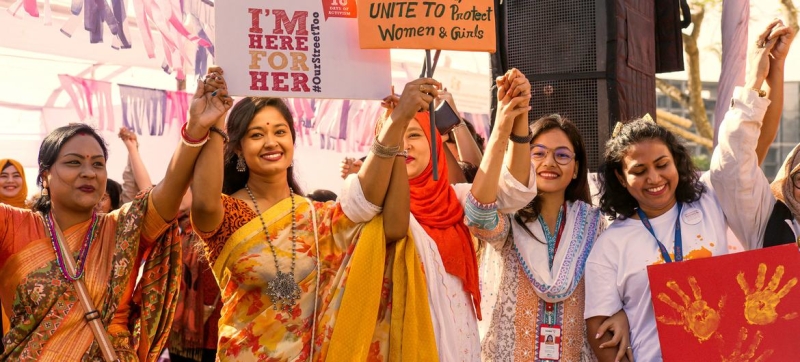
An event as part of the 16 Days of Activism against Gender-Based Violence campaign in Bangladesh. The global campaign 16 Days of Activism against Gender-Based Violence has been launched Women
On Monday, November 25, when the world celebrates the International Day for the Elimination of Violence against Women, the annual international campaign 16 Days of Activism against Gender-Based Violence was launched.
Every 10 minutes in 2023, a woman was intentionally killed by an intimate partner or family member.
That’s why, during the global campaign for 16 Days of Activism against Gender-Based Violence, the UNiTE campaign is drawing attention to the alarming escalation of violence against women under the slogan “A woman is killed every 10 minutes. #NoExcuse. UNITE to end violence against women.”
Nearly one in three women will experience violence in her lifetime. Girls are at particular risk of violence, with one in four adolescent girls experiencing violence at the hands of their partners.
Violence against women and girls remains the most widespread human rights violation worldwide. The problem, exacerbated by the COVID-19 pandemic, is further exacerbated by climate change, global conflict and economic instability.
Globally, an estimated 736 million women – nearly one in three – have experienced physical or sexual violence at the hands of an intimate partner or non-partner at least once in their lifetime.
At the same time, a backlash against women’s rights is spreading across the world. Anti-feminist movements are growing, attacks on human rights defenders and activists have increased, regressive new laws are exacerbating impunity for perpetrators of gender-based violence, and the legal status of women is increasingly under threat in many countries.
UN Women’s Regional Office for Europe and Central Asia conducted research in 13 countries to better understand the types and prevalence of technology-enabled violence against women. The study examines the impact of this type of violence on women and their ability to access support services.
The most common form of technology-enabled violence against women often comes in the form of offensive content, with almost 40 percent of women experiencing it. This is followed by inappropriate sexual advances or explicit content on social media. One in four women have had their online accounts or web pages hacked. One in eight women have had their phone calls, messages or posts monitored in order to track their communications.
